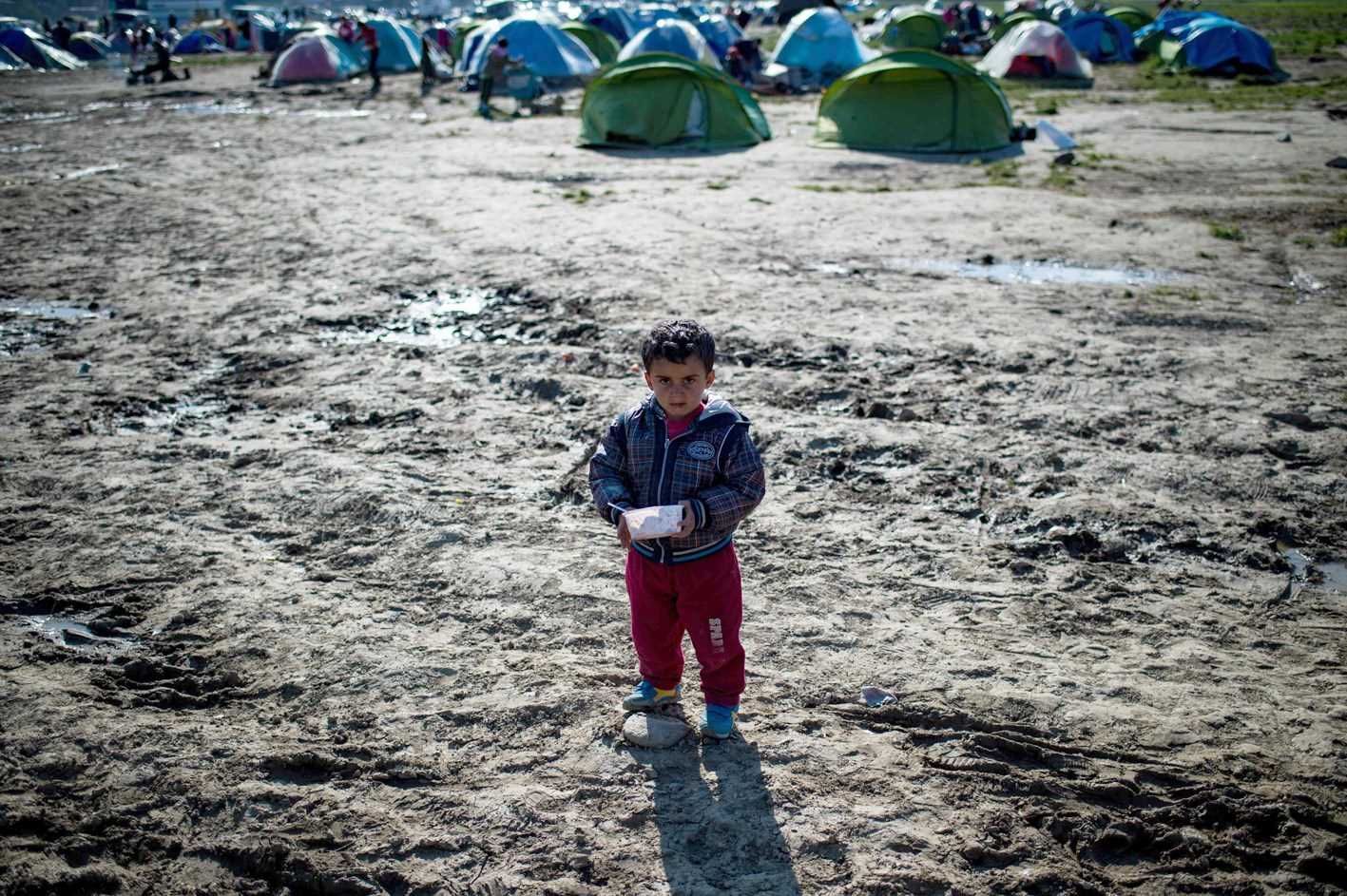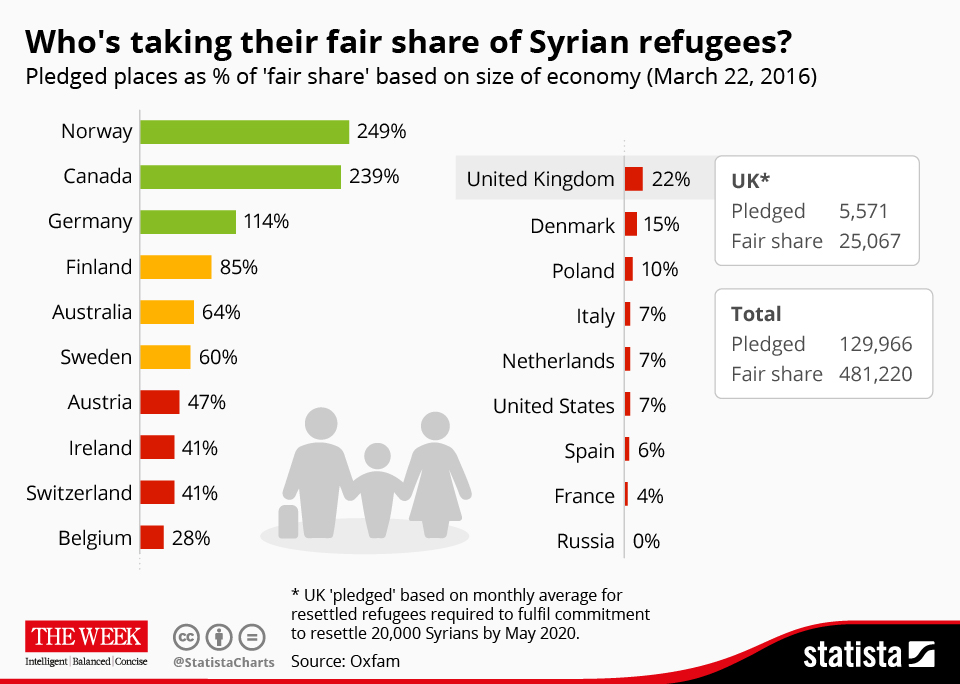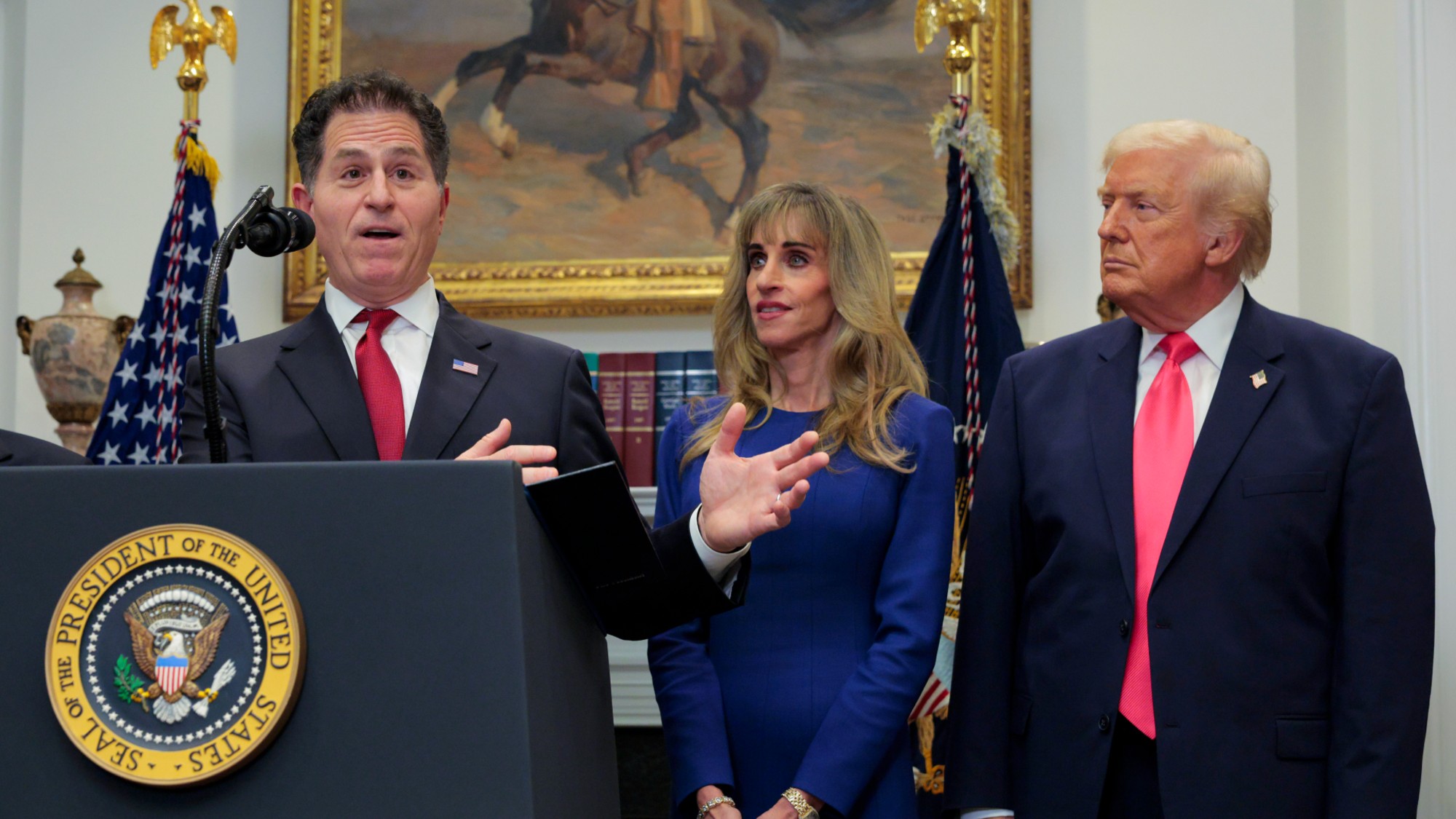Refugee crisis: How many people should Britain accept?
The numbers vary, but most agree that a better long-term response is urgently needed

A free daily email with the biggest news stories of the day – and the best features from TheWeek.com
You are now subscribed
Your newsletter sign-up was successful
The British government is facing fresh criticism for failing to accept its fair share of refugees as the humanitarian crisis engulfing Europe continues to worsen.
At a meeting in Geneva today, the United Nations refugee agency (UNHCR), charities and NGOs are calling on countries to collectively commit to resettling at least ten per cent of the refugee population – the equivalent of 481,220 people – by the end of 2016.
"We are here to address the biggest refugee and displacement crisis of our time," UN secretary general Ban Ki-moon told delegates. "This demands an exponential increase in global solidarity."
The Week
Escape your echo chamber. Get the facts behind the news, plus analysis from multiple perspectives.

Sign up for The Week's Free Newsletters
From our morning news briefing to a weekly Good News Newsletter, get the best of The Week delivered directly to your inbox.
From our morning news briefing to a weekly Good News Newsletter, get the best of The Week delivered directly to your inbox.
The UK has so far only agreed to accept 20,000 refugees from camps in the Middle East over the next five years.
Critics have long argued that the number is nothing compared with nearly five million refugees who have already fled Syria and the hundreds of thousands who will be accepted by other EU states.
How many people should the UK accept then?
Based on the size of the economy, Oxfam has calculated Britain's "fair share" of Syrian refugees to be 25,067 by the end of 2016. The country is on track to accept 5,571 by the end of the year, meaning it will have only contributed 22 per cent within the timescale.
A free daily email with the biggest news stories of the day – and the best features from TheWeek.com
Countries such as Germany, Norway and Canada have all contributed more than 100 per cent, showing "that where there is political will there is a way to offer this lifeline to desperate refugees," says the charity.

Migration expert Tim Finch argues that the number should be 50,000 based on the UK's population size. "Unlike some countries, Britain is certainly not over-burdened," he told The Guardian.
"The real issue, however, is not whether Britain should take 10, 20 or even 50,000 refugees now (though I'd favour the higher number), it is the need for a better long-term response," Finch adds.
However, Downing Street has long argued that accepting refugees from Europe would only encourage more people to make the dangerous journey across the Mediterranean.
It also points to the fact that the UK, already the second-largest bilateral donor in Syria, recently pledged to double funding to £2.3bn by 2020.
But after visiting refugees in Greece and Lebanon's Bekaa Valley earlier this month, UNHCR Special Envoy Angelina Jolie Pitt said such actions were not enough.
"Leadership in this situation is about doing more than simply protecting your borders or putting forward more aid," she said.
"My plea is that we need governments around the world to show leadership, to analyse the situation, to understand exactly what their countries can do, how many refugees they can assist and how."
Infographic by www.statista.com for TheWeek.co.uk
-
 How the FCC’s ‘equal time’ rule works
How the FCC’s ‘equal time’ rule worksIn the Spotlight The law is at the heart of the Colbert-CBS conflict
-
 What is the endgame in the DHS shutdown?
What is the endgame in the DHS shutdown?Today’s Big Question Democrats want to rein in ICE’s immigration crackdown
-
 ‘Poor time management isn’t just an inconvenience’
‘Poor time management isn’t just an inconvenience’Instant Opinion Opinion, comment and editorials of the day
-
 House votes to end Trump’s Canada tariffs
House votes to end Trump’s Canada tariffsSpeed Read Six Republicans joined with Democrats to repeal the president’s tariffs
-
 How corrupt is the UK?
How corrupt is the UK?The Explainer Decline in standards ‘risks becoming a defining feature of our political culture’ as Britain falls to lowest ever score on global index
-
 ‘My donation felt like a rejection of the day’s politics’
‘My donation felt like a rejection of the day’s politics’Instant Opinion Opinion, comment and editorials of the day
-
 ‘It’s good for the animals, their humans — and the veterinarians themselves’
‘It’s good for the animals, their humans — and the veterinarians themselves’Instant Opinion Opinion, comment and editorials of the day
-
 The high street: Britain’s next political battleground?
The high street: Britain’s next political battleground?In the Spotlight Mass closure of shops and influx of organised crime are fuelling voter anger, and offer an opening for Reform UK
-
 Who is paying for Europe’s €90bn Ukraine loan?
Who is paying for Europe’s €90bn Ukraine loan?Today’s Big Question Kyiv secures crucial funding but the EU ‘blinked’ at the chance to strike a bold blow against Russia
-
 ‘These accounts clearly are designed as a capitalist alternative’
‘These accounts clearly are designed as a capitalist alternative’Instant Opinion Opinion, comment and editorials of the day
-
 Is a Reform-Tory pact becoming more likely?
Is a Reform-Tory pact becoming more likely?Today’s Big Question Nigel Farage’s party is ahead in the polls but still falls well short of a Commons majority, while Conservatives are still losing MPs to Reform